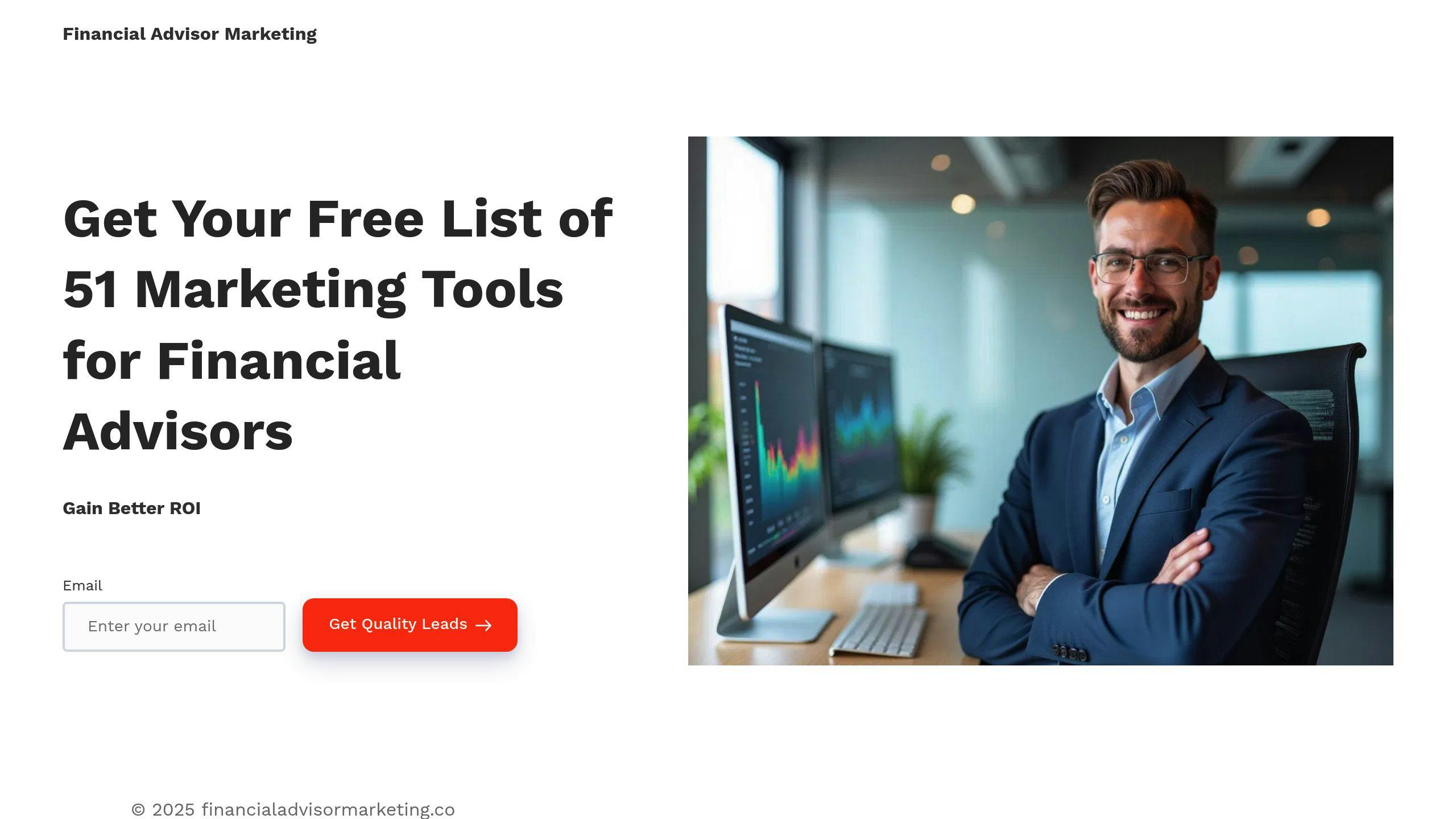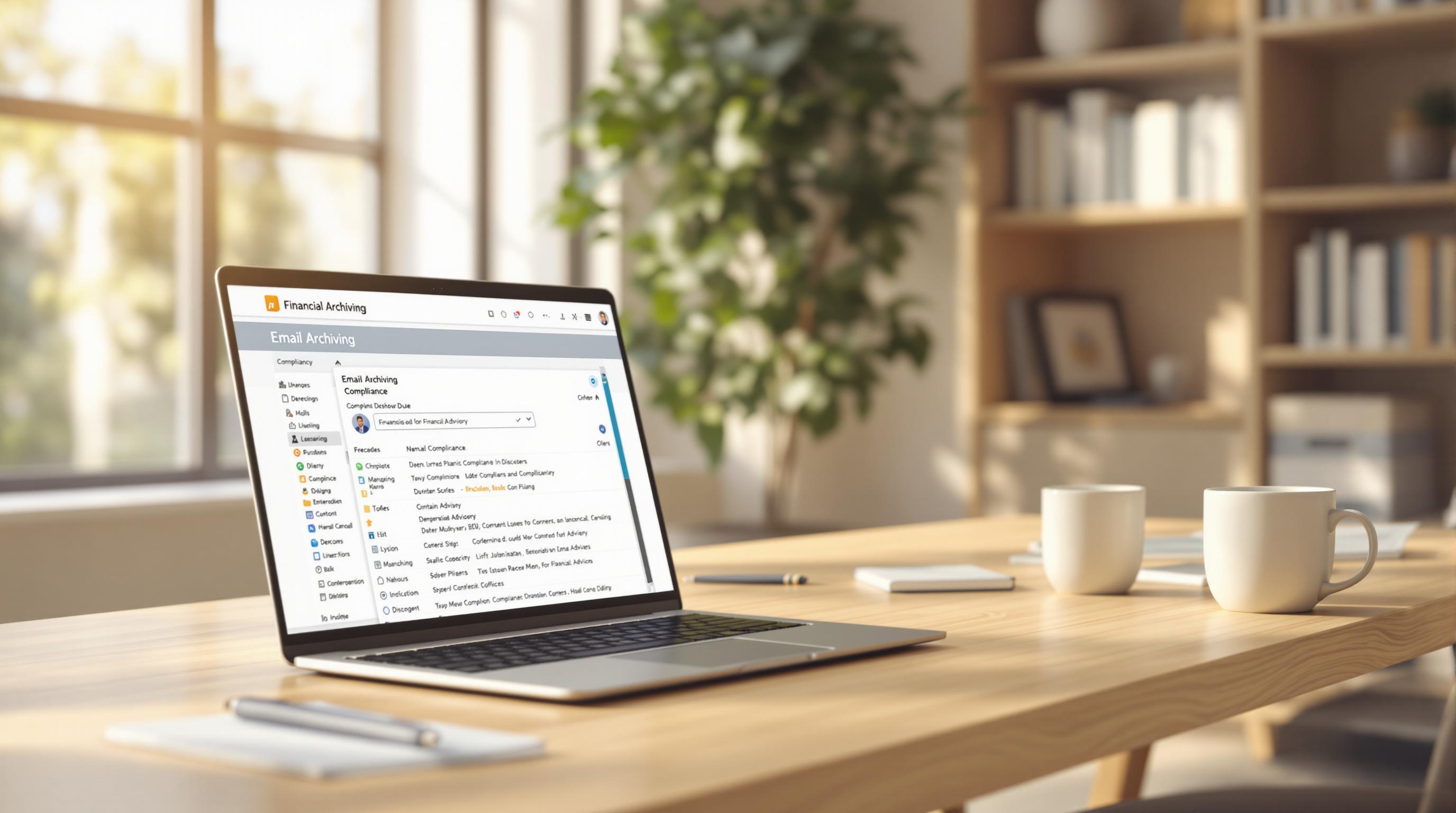Choosing the perfect venue can make or break your event. Here's a quick checklist to ensure your venue meets all the essential criteria:
- Budget: Allocate 40-50% of your event budget for the venue and related costs. Save by booking off-peak and negotiating packages.
- Location: Ensure easy access to financial districts, public transit, parking, and nearby hotels or restaurants.
- Facilities: Prioritize venues with reliable internet, audiovisual equipment, catering options, and flexible layouts.
- Safety & Accessibility: Verify emergency plans, ADA compliance, and features like ramps, elevators, and clear signage.
- Aesthetics & Branding: Select a professional space that aligns with your brand and offers digital or physical branding opportunities.
- Vendor Management: Vet vendors for catering, AV, and décor. Negotiate clear contracts to avoid surprises.
Budget and Costs
Planning your budget wisely is crucial when choosing a venue for your financial advisor event. Keeping costs under control while ensuring a professional experience is key to meeting your event goals.
Budget Planning and Cost Management
Here are some common venue-related expenses to account for:
- Venue rental and basic services: Includes the cost of reserving the space and any necessary amenities.
- Technical support and equipment: Covers audio-visual tools, internet access, and on-site technical assistance.
- Insurance and security: Essential for safeguarding participants and complying with regulations.
- Contingency funds: A safety net for unexpected expenses.
How to Allocate Your Budget:
- Dedicate 40-50% of your total event budget to venue and associated costs.
- Keep 10-15% aside for unplanned expenses.
- Use tools like spreadsheets to monitor spending and avoid going over budget.
Tips to Save on Costs:
- Compare multiple venues to find the best value.
- Opt for service packages that include multiple essentials.
- Book during off-peak seasons to secure lower rates [2].
- Negotiate terms to fit your financial plan.
Staying on top of your budget ensures the venue enhances your event without unnecessary spending. A well-chosen venue can elevate the attendee experience and foster better networking opportunities [3].
Once your budget is in place, it’s time to focus on location and accessibility to make the event convenient for everyone.
Location and Access
Choosing the right venue can make or break your financial advisor event. A convenient, well-thought-out location not only boosts attendance but also leaves participants with a positive impression.
Check Location Suitability
When scouting venues, focus on places that cater to the preferences and schedules of financial professionals.
Key factors to consider:
- Close to financial districts (within 15–20 minutes)
- Located in a well-lit, safe area, especially for evening events
- Clear and visible signage to help attendees find the venue easily
- Nearby access to business hubs, hotels, and restaurants
Transportation and Parking Options
Make sure attendees have multiple transportation options to reach the venue without hassle:
| Transportation Type | Details to Look For |
|---|---|
| Public Transit & Ride-share | Close to stations (within 0.5 miles) and designated pickup/drop-off zones |
| Parking | At least 1 space for every 3 attendees expected |
| Airport Access | No more than a 30-minute drive for out-of-town participants |
Parking Tips: Reserve spaces for VIPs and speakers, ensure accessible parking close to entrances, and prioritize secure, well-lit areas. Make parking validations straightforward and consider covering parking fees in your budget to simplify things for attendees.
Facilities and Services
Having the right facilities and services can make all the difference in creating a professional atmosphere and ensuring everything runs smoothly for attendees. Today's events demand reliable infrastructure to support presentations, networking, and overall attendee comfort.
Audiovisual and Technical Support
Good audiovisual equipment is a must for professional presentations. Be sure to include:
- HD displays or projectors
- High-quality sound systems and wireless microphones
- On-site technical support
- Backup equipment for critical needs
Plan a technical walkthrough before the event. This allows you to test the equipment and address any potential problems ahead of time.
Catering and Refreshments
Many venues provide in-house or preferred catering services. Look for catering options that meet dietary needs, offer continuous beverage service, and maintain excellent service standards. Key considerations include:
- Customizable menu options and service styles
- Enough staff to serve attendees efficiently
- Beverages available throughout the event
Internet and Connectivity
Fast and reliable internet is non-negotiable for most modern events. Confirm that the venue offers high-speed internet along with backup options to avoid interruptions. Request recent internet performance data and ensure:
- Consistent coverage throughout the venue
- A backup connection in case of issues
- On-site support for connectivity problems
"The choice of venue and its facilities can significantly impact the success of an event, emphasizing the importance of thorough evaluation" [3].
When finalizing contracts with venues, make sure all technical needs are clearly outlined [2]. Include clauses for technical support and minimum service standards to safeguard your event's success.
Once the facilities and services are secured, the next step is to ensure the venue's layout and size align with your event's objectives.
Layout and Size
The size and arrangement of your venue play a major role in setting the tone and facilitating meaningful interactions at financial advisor events. A thoughtful setup helps create the right environment for networking, presentations, and professional engagement.
Check Venue Size
When assessing venue size, think about both the overall square footage and how it can be used effectively. For networking events, a good rule of thumb is to allow 10-15 square feet per person to ensure everyone has enough room to move and interact. For instance, if you're hosting 100 attendees, you'll need about 1,000-1,500 square feet of usable space, not including extra areas for things like registration, catering, or breakout sessions.
Here are some key points to keep in mind:
- Total capacity and buffer: Make sure the venue comfortably accommodates your guest count, with additional room for registration desks, catering stations, and any equipment.
- Traffic flow: Plan clear pathways to keep people moving smoothly between different sections of the event.
- Breakout areas: Include smaller, quieter spaces for one-on-one meetings or small group discussions.
Layout Flexibility
The ability to adjust the layout is important for financial advisor events, which often involve a mix of presentations, networking, and dining. The venue should allow for different setups without sacrificing comfort or flow.
Here’s what to look for:
- Modular furniture: Seating should be easy to rearrange for various session types.
- Partition options: Movable walls or dividers can help create private or semi-private areas for specific activities.
- Stage or presentation area: Check if temporary stages or platforms can be added or removed as needed.
- Technical setup: Ensure the space can accommodate equipment like screens and projectors without obstructing movement.
| Layout Type | Space Required per Person | Best For |
|---|---|---|
| Theater Style | 8-10 sq ft | Presentations |
| Roundtable | 12-15 sq ft | Group Discussions |
| Reception | 10-15 sq ft | Networking |
| Classroom | 15-18 sq ft | Workshops |
Work closely with venue staff to confirm that all layout requirements are met. Once the size and layout are sorted, you can move on to ensuring the venue is safe and accessible for all attendees.
sbb-itb-e3190ce
Safety and Accessibility
When planning financial advisor events, ensuring both safety and accessibility is critical. These factors not only meet legal requirements but also create a better experience for everyone attending.
Safety and Emergency Plans
Start by confirming that the venue complies with fire codes and emergency protocols. Request documentation on emergency procedures and check key safety features like:
- Clear, unobstructed emergency exits
- Working fire suppression systems
- Accessible first aid stations and equipment
- Emergency lighting
- Posted evacuation routes
Review the venue's emergency response plan with their safety coordinator. This plan should cover procedures for various situations, such as medical emergencies, natural disasters, or security threats. According to the International Code Council (ICC), there should be at least two emergency exits accessible from any location in the venue [1].
| Safety Feature | Documentation Needed | How to Verify |
|---|---|---|
| Fire Safety | Current inspection reports | On-site inspection |
| Emergency Response | Written evacuation plans | Staff walkthrough |
| First Aid | Medical equipment details | Physical verification |
| Security Systems | Access control protocols | System testing |
Once safety is addressed, turn your attention to making the venue accessible for all attendees.
Accessibility for All
Meeting ADA standards is just the starting point. To ensure the event is truly inclusive, check for features like:
- Wide doorways, ramps, elevators, and clear, high-contrast signage with Braille
- Hearing loops or sound amplification systems
- ADA-compliant restrooms on every event level
- Flexible seating arrangements that accommodate mobility devices
"The key to creating truly inclusive events is going beyond minimum accessibility requirements. Event planners should conduct thorough accessibility audits and consult with attendees who have specific needs to ensure comprehensive accommodation", says the ICC Belfast's event management team [4].
Consider offering additional services, such as:
- Sign language interpreters (available upon request)
- Accessible parking with clear pathways to the venue
- Well-lit pathways and meeting spaces
Partner with venue staff to ensure they are trained in disability awareness and can assist attendees as needed.
With safety and accessibility addressed, you're ready to assess how the venue reflects your event's branding and overall goals.
Aesthetics and Branding
The look and feel of a venue not only represent your brand but also set the tone for professional networking and engagement. Choosing the right venue for financial advisor events requires attention to both visual appeal and branding opportunities.
Matching the Venue's Aesthetic
When assessing venues, prioritize those that exude professionalism and elegance while maintaining a welcoming vibe. Pay close attention to the venue's architecture and interior design to ensure they align with your brand's image.
Here are some key aesthetic factors to consider:
| Aesthetic Element | What to Evaluate | Impact on Event |
|---|---|---|
| Architecture | Modern or classic design styles | Shapes attendees' first impressions |
| Interior Design | Colors, materials, and finishes | Reflects and reinforces brand identity |
| Natural Light | Window placement and coverage | Enhances mood and photography |
| Artificial Lighting | Customizable options | Complements the event's atmosphere |
Maximizing Branding Opportunities
Look for venues that offer multiple ways to showcase your brand. Modern spaces often come equipped with features that make branding integration seamless and visually impactful.
Here’s what to look for:
- Digital and Physical Branding Options: LED screens, banners, and projection areas for displaying your visuals.
- Advanced Technical Features: Capabilities for showcasing dynamic content and live updates.
- Adaptable Layouts: Spaces that can be tailored to create immersive, branded environments.
Digital displays, for instance, can reduce branding expenses by up to 40% compared to traditional signage [1]. Evaluate the venue's existing features to identify where your branding can shine:
| Branding Element | Purpose | Implementation |
|---|---|---|
| Entry Points | Establishes first impression | Logos and welcome displays |
| Event Spaces | Immersive brand experience | Large screens and custom signage |
| Digital Surfaces | Engages attendees | Real-time updates and dynamic visuals |
Collaborate with the venue's technical team to explore all branding possibilities and address any restrictions. Many venues also offer in-house design services to streamline branding efforts while ensuring compliance with their guidelines.
Once you've aligned the venue's aesthetics and branding with your vision, the next step is to coordinate with vendors and finalize the necessary contracts.
Vendor Coordination and Contracts
Managing vendors effectively is crucial for ensuring financial advisor events run without a hitch. This means choosing the right partners, negotiating clear agreements, and maintaining open communication. Reliable vendors help create a smooth experience, leaving attendees with a lasting positive impression.
Select and Vet Vendors
When evaluating vendors, use a checklist to ensure they meet your needs. Focus on these key factors:
- Proven experience with financial industry events and solid client references
- Financial stability and adequate insurance coverage
- Technical capabilities that align with your event's requirements
| Vendor Type | Key Evaluation Points | Required Documentation |
|---|---|---|
| Catering Services | Menu options, dietary accommodations, service quality | Health certificates, insurance |
| AV Equipment | Equipment reliability, backup systems | Equipment warranties |
| Décor Services | Design portfolio, setup efficiency | Liability insurance, permits |
Negotiate Clear Contracts
Clear, detailed contracts minimize misunderstandings and help ensure everything runs smoothly. Pay attention to these elements:
| Contract Element | Key Details to Include | Risk Mitigation Measures |
|---|---|---|
| Service Scope | Deliverables, timelines, setup requirements | Performance metrics, backup plans |
| Payment Terms | Payment schedule, amounts, cancellation policies | Milestones for payments |
| Liability Coverage | Insurance requirements, liability terms | Clear risk-sharing agreements |
To simplify vendor management:
- Assign one person to handle all vendor communication.
- Use event management software to track deliverables, deadlines, and vendor performance.
- Schedule regular check-ins with key vendors.
- Keep a written record of all changes and agreements.
If possible, consider using a vendor management platform. These tools help you:
- Track contract milestones
- Communicate in real time
- Monitor performance metrics
Finalizing vendors and contracts sets the stage for a professional and seamless event that will leave a strong impression on attendees.
Conclusion
Choosing the right venue is a key step in organizing successful financial advisor events. By focusing on factors like budget, location, facilities, and branding, you can ensure your event meets professional standards and exceeds attendee expectations.
The best events happen in venues that offer dependable technology and a polished atmosphere. Using a structured checklist can help you sidestep common mistakes and create an environment that aligns with your goals [1].
Here are a few core factors to keep in mind:
| Factor | How It Helps |
|---|---|
| Budget Planning | Keeps costs under control |
| Strategic Location | Encourages higher attendance |
| Technical Support | Ensures smooth presentations |
By addressing these elements, financial advisors can host events that boost their reputation and create meaningful connections [2][4]. When logistics are handled well, events naturally deepen client relationships and contribute to business growth [3].
Additional Resource: Financial Advisor Marketing

Looking to elevate your event planning and marketing efforts? Check out Financial Advisor Marketing for a free list of 51 essential marketing tools tailored for financial advisors. These tools can help you amplify your event's impact and grow your practice efficiently.
FAQs
What factors must be considered when selecting an event venue?
Choosing the right venue for financial advisor events involves weighing several important elements. Here's a breakdown of key considerations:
| Priority Factor | Key Considerations |
|---|---|
| Budget & Costs | Venue rental, catering, AV equipment, hidden fees |
| Location | Transportation access, parking availability |
| Technical Setup | Internet connectivity, power supply, AV capability |
| Space & Layout | Capacity needs, flexible configurations |
| Amenities | Catering options, restrooms, breakout rooms |
A venue with reliable technical capabilities is crucial for smooth execution. Before finalizing, ensure all technical needs are thoroughly assessed.
Other aspects to keep in mind include:
- Safety and accessibility compliance
- Basic options for promotional displays
- Venue-specific policies and restrictions
When budgeting, remember to factor in both visible and hidden costs, such as:
- Base rental fees
- Insurance requirements
- Staffing needs
- Setup, breakdown, and overtime charges
- Equipment rentals
Conducting site visits and clearly documenting requirements in vendor contracts can help avoid surprises [2][4]. By addressing these factors, you’ll be better prepared to select a venue that supports your event’s objectives and creates a positive experience for attendees.


